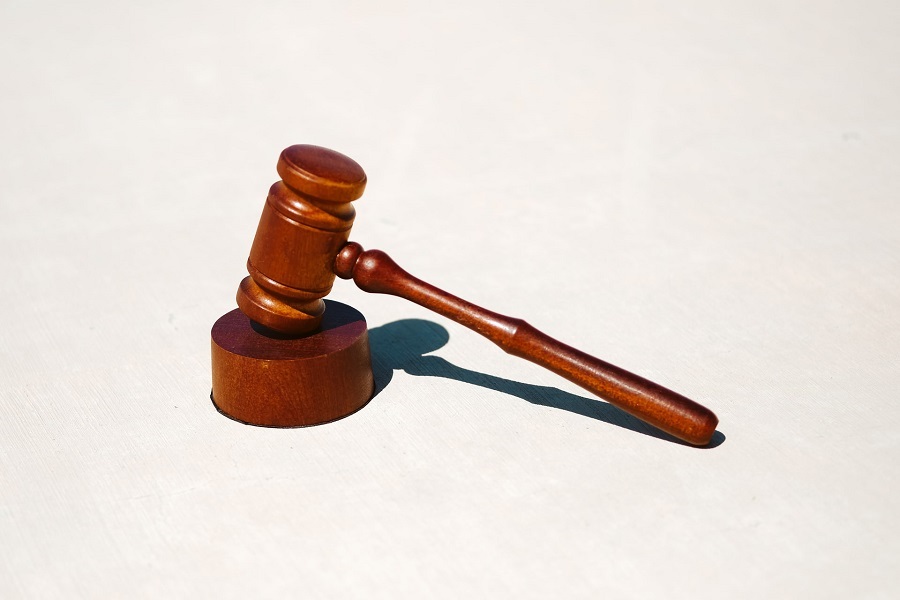If you’ve been convicted of a crime in Atlanta, it doesn’t mean your fight is over. If you’re not happy with the decision and think that mistakes were made during your trial, you can file for an appeal.
The appeals process is in Atlanta is a complex one. It’s crucial you approach it correctly, as you don’t get many opportunities. This is why it’s essential you retain the services of an experienced appellate lawyer.
If you or a loved one have been convicted of a crime and you want to know if you’re eligible to file an appeal, here’s an outline of how the criminal appeals process works in Atlanta:
What Is a Criminal Appeal?
First of all, it’s important to know that an appeal does not mean you’re going to have a new trial. An appeal (also known as post-conviction relief) means you’re requesting for your trial/conviction to be reviewed by an appellate court.
A higher court will carry out this review from the one in which you were convicted. In Atlanta, this typically means the Georgia Court of Appeals or the District Courts of Appeals.
You’re not able to introduce any new evidence or witnesses, and there is no jury. The purpose of the appellate court’s review is to look at the evidence, facts, and why you’re requesting an appeal.
After some time to review your trial, they will either return a verdict upholding the original judgment or grant permission to file for a new trial.
Reasons to File an Appeal
To file an appeal and increase your chances of a favorable outcome, you need to have a lawful reason to appeal your conviction.
The three main reasons to appeal a conviction in Atlanta include:
Errors in Your Trial
If you can prove that errors were made during your trial, you have a strong case for a successful appeal.
Common errors include wrongful admission of evidence, misdirection to the jury, and even errors made by the trial judge.
The appellate court will take a look at how these errors impacted the case. If they think the outcome could have been different had the errors not occurred, you may have your conviction overturned based on your individual case or situation.
Unreasonable Verdict
Sometimes, the verdict of a criminal case is unreasonable, given the evidence presented. If you can prove the evidence was too weak for jurors to reasonably find you guilty beyond a reasonable doubt, you can win an appeal.
Miscarriage of Justice
You can file an appeal on the grounds of a miscarriage of justice. Typical examples of a miscarriage of justice include; discovering a jury member was biased in some way or proving some language barriers were not dealt with appropriately.

How does a Criminal Appeal work in Atlanta?
It’s important to be aware that you only have 30 days from the date of conviction to file a motion for a new trial or an appeal.
If you do miss this 30-day window, you still have options. But filing a motion within those first 30 days will help your case.
The appeal process in which a defendant has to then go through in Atlanta is as follows:
Retaining an Appeal Attorney
Handling an appeal is a specialized area of law. For this reason, not all trial attorneys handle appeals. Due to the importance of an appeal, it’s crucial you find an experienced appellate attorney to work with.
Your attorney will then instruct you on exactly what you need to do and what information they need.
Filing a Motion for a New Trial or Notice of Appeal
The first step is to file a motion for a new trial or a notice of appeal within 30 days of conviction. Filing for a new trial gives the trial judge an opportunity to review the case a second time themselves.
There are some instances where a judge will see that something unconstitutional happened in the trial, and they may change their decision. This is also an opportunity to introduce additional evidence in some cases.
If this isn’t successful, you can file a notice of appeal and take the matter higher. In addition, your attorney will make this decision with your best interests in mind based on your individual case.
Preparing the Record on Appeal
Once a direct appeal has been filed, there’s a lot of work that has to take place before the appeal.
Your attorney will obtain and prepare trial transcripts, the trial record, and anything else case-specific required. The court will usually set a briefing schedule and may ask for some specific information.
So, while you had only 30 days to file an appeal, it may be several months before the appeal actually takes place.
What if You Lose Your Appeal?
If you’ve gone through the court of appeals, it’s possible your appeal was denied. This still doesn’t mean it’s the end of your appeal process, though.
You still have the opportunity to have a court review your case. The next step is to file a petition called a ‘Writ of Certiorari,’ or ‘cert’ for short.
This petition goes to the Georgia Supreme Court. They will then look at the court of appeals’ decision and decide if they want to take the case.
If the Georgia Supreme Court feels although an error was made in your trial or that you are just in your appeal, they will grant that writ of cert. This allows you to take your case to the State Supreme Court.
After all the direct appeals have been filed, if you’re still unable to have your appeal granted, there is one more option. This is called filing for another writ called ‘Habeas Corpus.’
Moreover, this writ enables you to argue any constitutional violations you feel may have taken place. It’s usually limited to the effectiveness of the trial lawyer that represented you in your trial.
You’ll be able to call your trial lawyer in front of a judge and present your evidence as to why they did not represent you effectively.
The interesting thing about filing a Habeas Corpus is that you can also challenge the conviction if you plead guilty. If you plead guilty under the advice of your trial lawyer, which you now know had given you bad advice, you can still have the decision overturned.
Want to Appeal a Conviction in Atlanta? Call Our Offices
Do you want to appeal a conviction? As we’ve explained, to have the best possible chance of overturning a conviction, it’s vital an experienced appellate attorney represents you.
Here at Arora Law, we have a number of attorneys experienced in handling criminal appeals in the state of Georgia. You can find out more about our appeals experience and processes here.
Call Arora Law at (404) 609-4664 or contact us online today for your free initial consultation. We proudly assist Spanish-speaking clients (Se habla Español) or Hindi.










